
The Catahoula leopard dog, also known as the Catahoula cur or Catahoula hog dog, is a medium-large herding dog breed from the United States whose trademark is their short, smooth coat that comes in an array of eye-catching colors and patterns. Many Catahoulas have distinctive blue eyes and a spotted coat that’s similar to a leopard pattern—hence the breed’s name.
These dogs tend to be serious about their work—whether it be farm work or hunting—and companionable with their family. They require a pet parent who is firm and consistent with training and who can provide them with lots of exercise.
Learn more about the Catahoula leopard dog, including their temperament, care needs, and history.
GROUP: Herding
HEIGHT: 22 to 24 inches
WEIGHT: 50 to 95 pounds
COAT: Short, smooth
COAT COLOR: Black, blue, blue merle, brindle, chocolate, red, yellow, red merle, white merle, or yellow merle with/without tan markings and/or white trim
LIFE SPAN: 10 to 14 years
TEMPERAMENT: Energetic, protective, independent
HYPOALLERGENIC: No
ORIGIN: United States
Catahoula leopard dogs generally have an energetic and alert temperament. And with their family they have fairly affectionate and playful personalities. They can be aloof around strangers, but they’re not aggressive toward people.
They don't always get along with other household pets, including dogs, due to their territorial nature and prey drive. Male Catahoulas can be aggressive when they’re around other male dogs, thanks to their working instinct. But they sometimes can coexist with dogs when raised together from a young age.
Though they have a low tendency to bark, these dogs will bark to alert you, and some are more vocal than others.
Opinions vary on the exact origin of the Catahoula leopard dog. One working theory is the domesticated dogs of Native Americans interbred with dogs that Spanish explorers brought to North America.
Some possible breeds in the mix include bloodhounds, greyhounds, and mastiffs. Later, the resulting dogs bred with the hounds that accompanied French immigrants arriving in Louisiana in the 1700s. The Beauceron, a French herding breed, is speculated to be part of the Catahoula leopard dog's ancestry.
Early Catahoula leopard dogs were valued as exceptional hunting companions. They were also used to herd wild cattle and hogs that were prevalent in Louisiana. People who bred the dogs prioritized their working abilities over appearance.
The Catahoula leopard dog is still a rare breed today. It's recognized by the United Kennel Club (where it is known as the Louisiana Catahoula leopard dog). And it's part of the American Kennel Club’s Foundation Stock Service, which is the first step in the process toward full breed recognition.
Catahoula leopard dogs need lots of exercise to be happy and healthy. They also require consistent training and socialization from an early age. Fortunately, their grooming needs are fairly straightforward.
Catahoula leopard dogs are high-energy herding dogs, so they need both ample exercise and mental stimulation to be content and well-behaved at home. They're prone to becoming destructive if they don't get their energy out in a constructive manner.
Aim for at least two hours a day of activity via:
These dogs should be kept on leash, as they have a high prey drive that can make them chase other animals. They also may not be suitable for dog parks because they could be aggressive toward other dogs. It’s best to have a fenced yard to keep your dog secure while playing outside. An electric fence likely won’t stop this dog from chasing animals they see.
Grooming is relatively easy for a Catahoula. The short coat only requires a weekly brushing to remove loose fur and dirt and to distribute skin oils. Plan on a bath roughly every month, depending on how dirty your dog gets.
Check your Catahoula’s nails about every month to see whether they need a trim. This breed’s nails tend to grow quickly. Check your dog’s ears at least weekly for wax buildup and abnormalities, and make sure to dry them thoroughly after baths and swimming. Also, aim to brush your dog's teeth every day.
Start training and socialization from as young of an age as possible. Catahoulas tend to be independent and territorial, and this can result in bad habits forming if you don’t guide your dog. Use positive training methods, and aim to keep training sessions fun. But always be consistent in your commands so your dog knows they can’t get away with bad behavior.
Moreover, expose your Catahoula to different people, other dogs, and various locations from an early age to boost their comfort and confidence. Having positive experiences in different situations can help to quell their territorial nature.
Catahoula leopard dogs are overall a healthy breed, but they still are prone to some hereditary health issues, including:
Always have fresh water available for your dog. And feed a high-quality canine diet that is nutritionally balanced.
These dogs might eat around 3 to 5 cups of food daily. It’s typical to give two measured meals per day to avoid overfeeding. But you should always discuss both the amount and type of diet with a vet. Likewise, be mindful of treats and other extra food to prevent excess weight gain.
While Catahoulas are a relatively rare breed, it's still worth checking animal shelters and breed-specific rescue groups for a dog in need of a home. If you're looking for a puppy from a reputable breeder, expect to pay around $600 to $2,000 on average.
For further information to connect you with a Catahoula, check out:
The Catahoula can be a great choice for experienced pet parents who are able to properly train, socialize, and exercise their dog. They are hardworking dogs, but they have a high prey drive, so this should be considered by multi-pet households.
Before bringing home a Catahoula leopard dog, be sure to do plenty of research to determine whether the breed is right for your lifestyle. Talk to breed owners, vets, rescue groups, and reputable breeders. Spend some time around Catahoulas too if possible.
If you’re interested in similar breeds, check out:
There’s a whole world of potential dog breeds out there—with a little research, you can find the right one to bring home!
Catahoulas are moderately tolerant of children when well-trained and socialized. They are best around older children who understand how to respectfully treat a dog.
Catahoula leopard dogs have a protective nature and can be territorial. They will defend against perceived threats, but early and consistent training and socialization can help to prevent aggression.
Catahoula leopard dogs are a rare dog breed. They are not yet recognized by the American Kennel Club, though they do have United Kennel Club recognition.

Cute Pictures & Facts About Calico Cats & Kittens
Learn fascinating facts about calico cats, including photos, the genetics behind this color combination, and common folklore and traditions.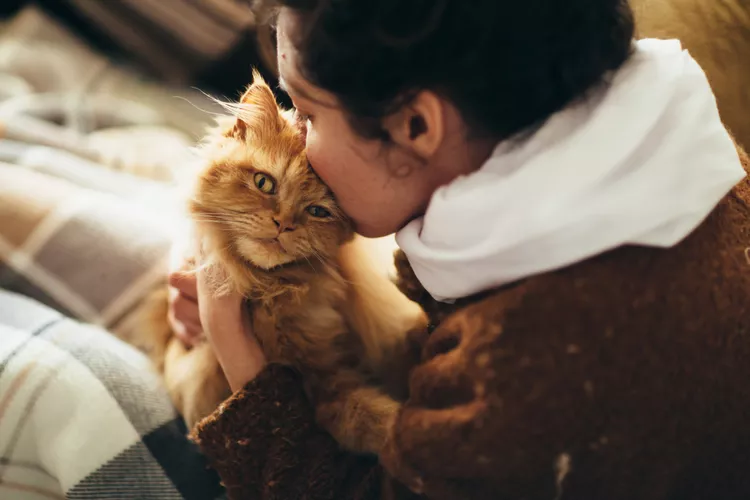
How to Prevent Cat Separation Anxiety During Vacations
Discover why cats develop litter box problems and cat behavior problems when you go on vacation and what you can do about it to help them.
Cat Behavior Changes That Might Mean Something's Wrong
Cats' behavioral changes may indicate problems—or they may mean nothing at all. Explore causes of odd behavior and what to do about them.
Lhasa Apso: Dog Breed Characteristics & Care
The Lhasa apso is an ancient breed from Tibet that was bred to be a watchdog. Learn about its history, health, exercise needs, and more.
Reasons Why Dogs Run Away and How to Stop It
Dogs can escape, especially if they’re bored and not properly contained. Here are some techniques for stopping your dog from running away.
Can Dogs Get Depression? How to Help Your Sad Dog
Can dogs get depression? Learn about the signs of depression in dogs and find out how to help your sad dog.
How to Stop Aggression in Dogs
Dog aggression can be a serious behavior issue for pet owners. Learn how to stop aggression in dogs before someone gets hurt.
How to Stop Your Dog From Growling
A growling dog can soon become even more aggressive. Reduce the noise and potential for a dangerous situation with some of these techniques.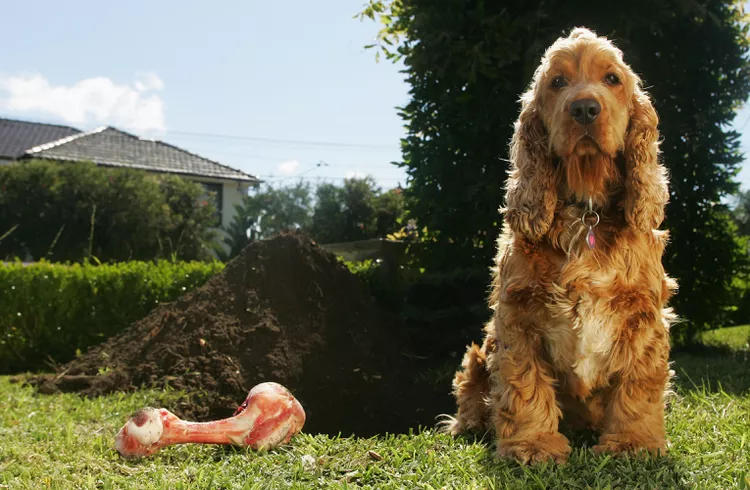
Why Do Dogs Dig Holes? How to Stop Your Dog from Relandscaping Your Yard
Dogs have been digging holes for centuries and for many reasons. Whether they’re bored or want to cool off in the dirt, here are the top reasons why dogs dig holes.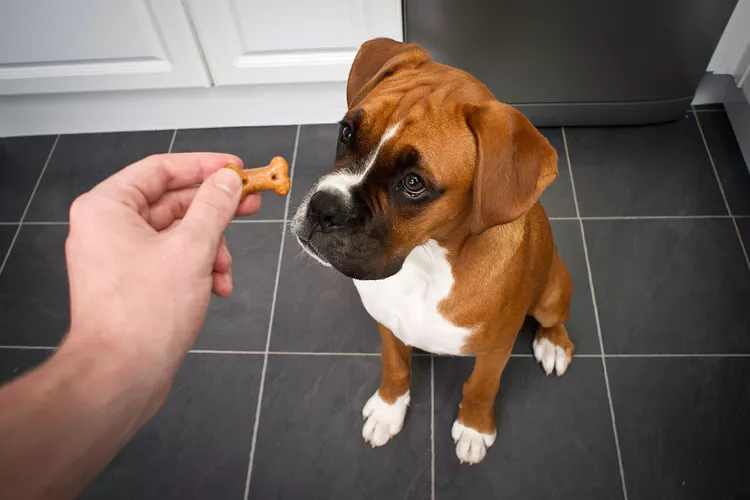
Dog Treat Varieties
Learn about the different types of dog treats on the market and decide which are best for your dog.
Can Dogs Eat Asparagus?
Dogs can eat asparagus, provided the vegetable is cooked plain and cut up for them. Seasonings, salt, and butter make it unhealthy for dogs.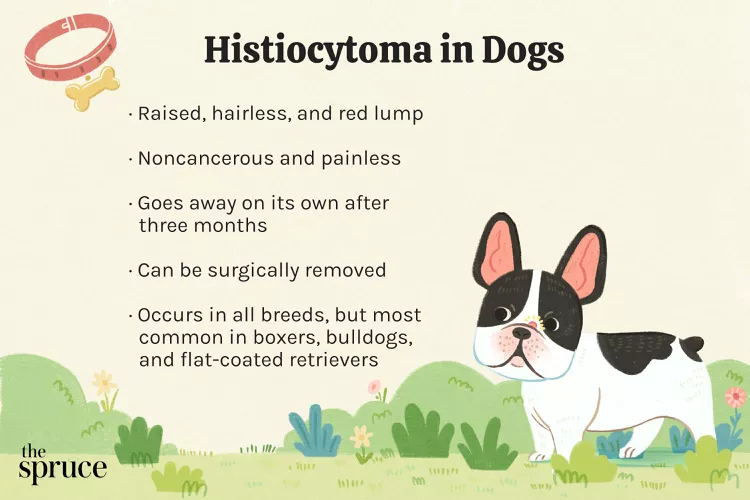
Histiocytomas in Dogs
A histiocytoma is a type of benign (non-cancerous) skin lump that usually affects young dogs. Learn the causes, treatment, and prevention.
Why Is My Dog’s Eye Swollen?
If your dog's eye is swollen, she may need veterinary attention. The inflammation could be caused by allergies, an injury, or even a tumor.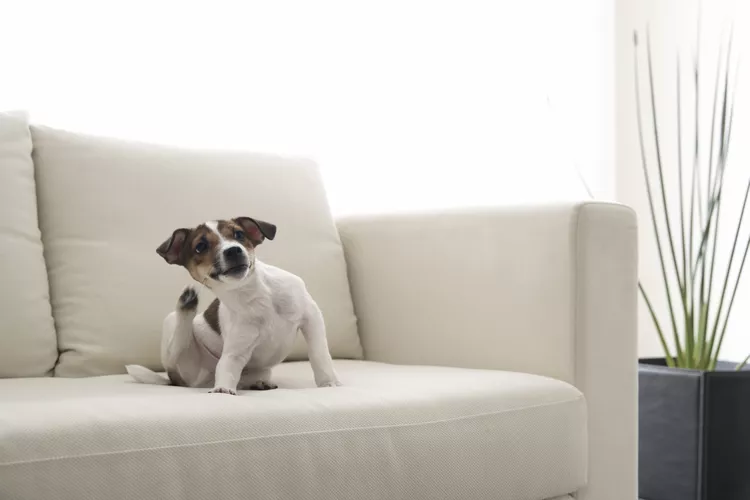
Common Bugs and Parasites Found on and Inside Dogs
Learn about common types of parasites in dogs. Find out how to treat and prevent parasites to keep your dog, your family, and yourself safe.
Exploring the Different Types of Pet-Friendly Beaches
Are you looking for pet-friendly beaches? Learn about the different types of pet-friendly beaches, their locations, and tips for visiting them with your pet.
10 Obscure, Little-known Canine Facts in Honor of National Dog Day
With National Dog Day upon us, it's time to celebrate everything about our favorite pets—even the weirder stuff. Here are 10 obscure facts about dogs you probably didn't know.
Kitten Development From 3 to 6 Months Old
Kittens grow and change a lot during their first year. Find out what happens between the ages of three months and six months old.
95 Siamese Cat Names
Our list of Siamese cat names has diverse and fun options to help you choose the ideal moniker for your elegant and lovable feline companion.
What to Buy for Your New Cat: A List of Essentials
Before you bring your new cat or kitten home, there are a number of things to collect or buy so your cat will feel welcomed like a family member.
The 6 Best Cat Nail Clippers of 2024 for a Safe Trim
Clipping your cat's nails can save your furniture and keep your kitty comfortable. We asked veterinarians for their cat nail clipper recommendations.